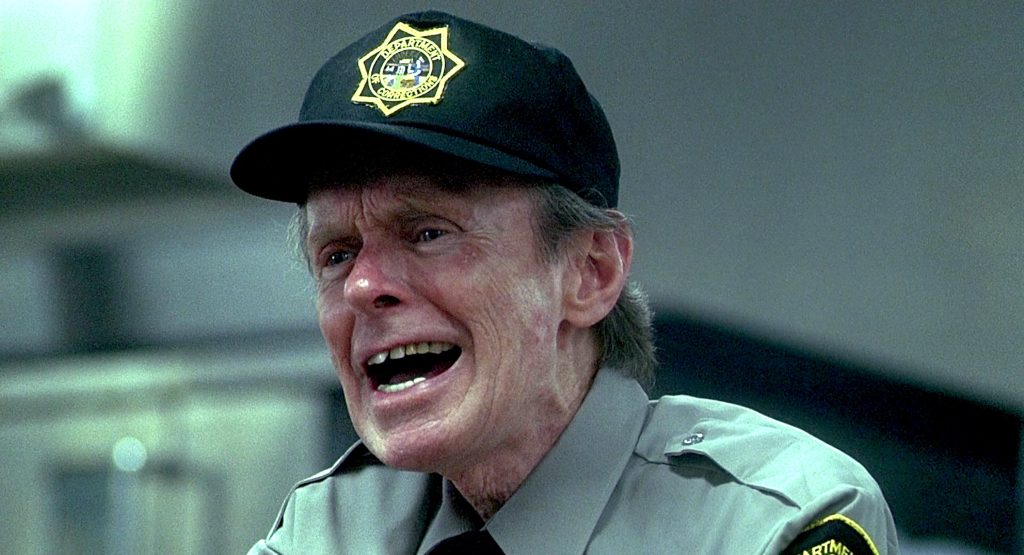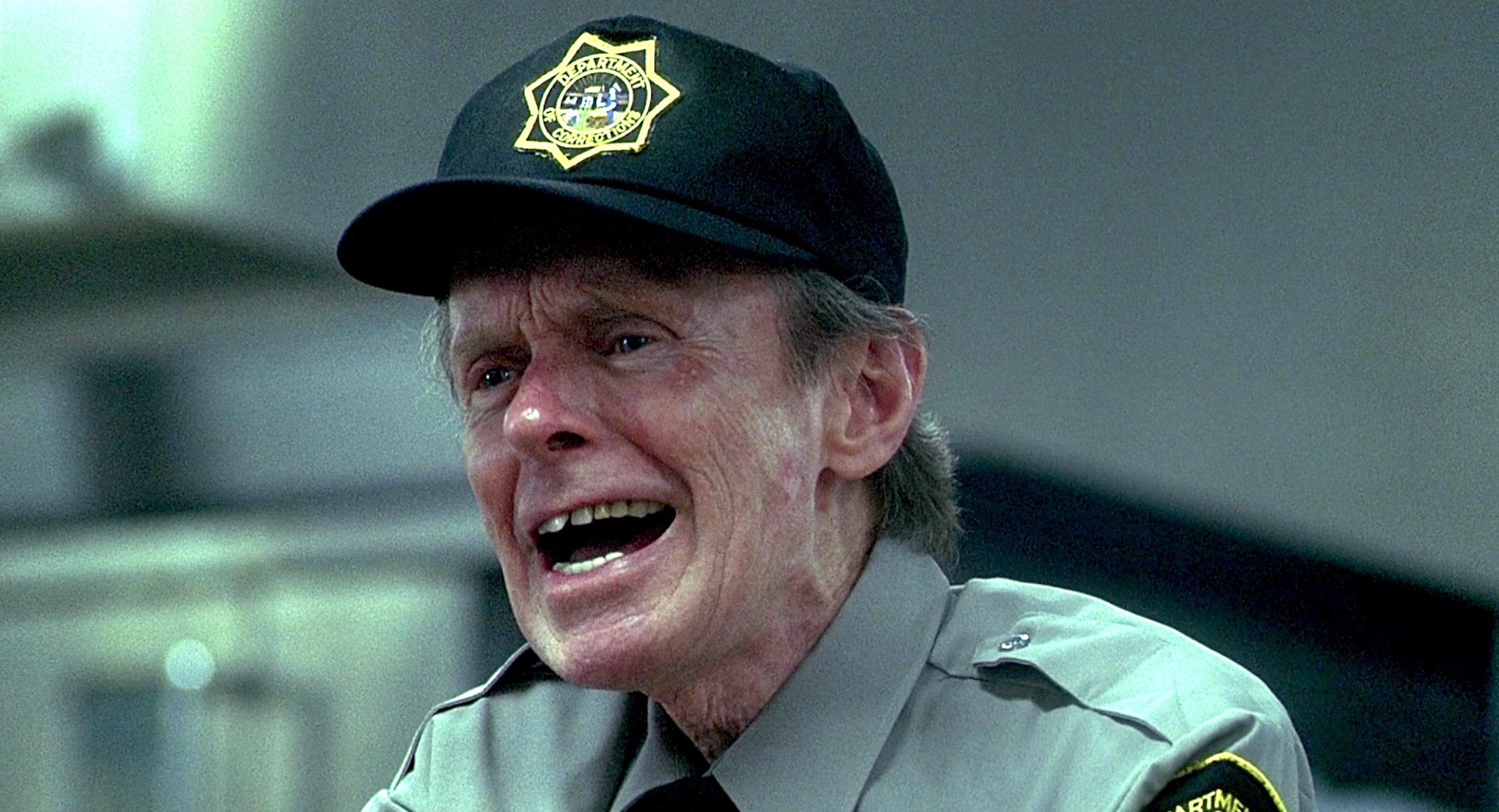
In order to understand the story The Queen is Dead, you must first come to understand the life that Hubert “Cubby” Selby Jr. had lived up until he had written his first published piece.
Selby was born in Brooklyn, New York in 1929, just before the start of the Great Depression. He was nicknamed Cubby because he was the Junior to his father’s senior, and he certainly didn’t want the kids from his neighborhood calling him “Hubert”. Brooklyn was a tough neighborhood. Most families had little to no money, and with the war starting to get heated across the pond, the entire world was starting to look like a tough place to live.
He was only 15 when he decided he wanted to get out. Selby lied about his age and joined the Merchant Marines, During the heart of WWII, the Merchant Marines would assist the Allied troops with delivering supplies and troops across seas when the Navy was in need. Cubby saw it as a way to see the world beyond his borough. His father had been a merchant seaman himself, so it wasn’t completely unfamiliar territory for the young Selby, but he had never anticipated contracting Bovine Tuberculosis while over in Europe. Selby would touch down in Bremen, Germany, three years into his time abroad and be sent back home to be hospitalized for the following three years. TB would ravage his body and leave him bedridden while the rest of his peers were graduating high school.
The next three years would consist of Cubby fighting for his life, daily. His mother, Adalin Selby, would purchase streptomycin off the black market and have her son take it to help battle the disease in his lungs. Selby would, later on, say how the drugs had a huge impact on his brain and psyche. It wasn’t just the treatment that weighed heavy on Cubby. The pain and anguish that would overtake his body were almost too much to bear. He went through four operations in three years, with each one having a larger impact on the young boy. After all was said and done, Cubby had multiple ribs removed from his body, and was only able to keep half of one lung functioning. One would completely collapse, while the other working one would need half of it completely removed. Selby lived every day with a diagnosis from a doctor stating that he would be lucky to make it through the week.
The hospital he had been admitted to was mainly filled with older merchant seamen. Cubby would later tell a story of how one other young man had died, and an older sailor approached Cubby and asked him to write the mother of the boy to help comfort her. Selby had never written anything before that moment. He had never finished school and hardly read any literature. But, he knew the importance of the older gentleman picking him out from all the others in the hospital. He sat down and after struggling for some time, was able to pen a letter to the boy’s mother.
Cubby would only wait a week for a response. The mother was so moved she decided to write Cubby. She thanked him for his kind words and informed him that it had helped her accept the passing of her son in a way that wouldn’t have been possible had he not corresponded. That was when Selby learned his first lesson about writing: writing could change the way people feel. Simply sitting down and putting your thoughts onto paper could make people feel happy, sad, alone, afraid, content, and anything else you wanted if you did it well enough. That was the first key ingredient in constructing Hubert Selby Jr. ‘s writing career, and the next would formulate shortly after.
Cubby would go on to have what he described as a spiritual experience. He woke up one day and realized that he was going to die. Not a slow death that he had been living for years, it would be sudden, and Cubby felt fear for the first time in his life. He realized that if death came for him, he would probably look back on his life and only see regret. He would go on to say this about the experience:
But I knew that someday I was going to die. And just before I died two things would happen; Number 1: I would regret my entire life. Number 2: I would want to live my life over again.
http://www.arte.tv/guide/fr/021372-000/hubert-selby-jr-2-ou-3-choses
Selby had seen what death looked like. He had been surrounded by it for months on end. But, for the first time in his life, Selby realized that he still had time. He had friends from his old neighborhood who had encouraged him to write. Selby wanted to study music, his real first love but realized that he would have to go to school for years to be a composer. But, Cubby knew the alphabet. He had a leg up in that direction, at least. Maybe becoming a writer wasn’t a bad idea after all?
Selby’s writing began after being released from the hospital, and each night after he would go and work his day job, he would come home and work on The Queen is Dead. His intention was to get it published in a literary magazine. Magazines paid well back in the fifties and sixties due to high readership and the need to pad publications with content.
The original name of this story was titled Love/s Labour/s Lost. It appeared in The Black Mountain Review’s Fall of 1957 issue. This would be the first time Selby would be published and it would be the basis of the rest of his novel, Last Exit to Brooklyn. It appeared alongside stories from Jack Kerouac, Joel Oppenheimer, and William Burroughs. Immediately, with his first published story, Selby stood alongside pioneering writers of his age. Not just that, but Selby had found the central theme of what would make up the bulk of the early part of his career: a life devoid of love. After the first story was published, it was followed up with additional stories that would be collected and republished as loosely connected narrative pieces. But without the first story, and without Georgie, there would be no Last Exit to Brooklyn.
The tale centers around Georgette. Georgette is a trans woman who lives in Brooklyn, and her main source of happiness comes from the drugs and booze she consumes. Georgette can’t stand feeling normal, because there are many things about her life that cause her incredible anxiety.
Selby began to write a story based on a kid from the neighborhood named Georgie. In a 1992 interview with Selby1, Georgie is described as hysterical. The young boy would also partake in drugs that only heightened the hysteria. Cubby began to construct a story based on him. He wrote a third of it before stopping, leaving the manuscript untouched for years. He only decided to go back to the story when he had heard of Georgie’s death. The young man had died of a drug overdose at 20, and Selby figured that the story needed to be finished in order to honor Georgie and leave a lasting impact.
Georgette lives with her mother and brother, Arthur. Arthur isn’t always home, but when he is, Georgette lives in constant fear and agony. Arthur refuses to accept Georgette as she is, insisting that she act like a man. When Georgette doesn’t comply, Arthur beats and reprimands her verbally. Georgette flees to the streets anytime he comes to stay in order to find solace. No matter how much she is berated, she cannot conform to her brother’s wishes of casting out her identity as a woman.
Georgette is in love with Vinnie, who also cannot conform to society’s norms. Vinnie is small in size but has always had a wild streak inside of him. The first crime he ever commits is stealing a hearse. When the policemen who stop him first witness him driving, they cannot see him behind the wheel because he is so short. When he is presented to the judge, he is lenient on the young boy due to his size and his innocence, but this only reinforces to Vinnie that he can get away with whatever he wants. His actions soon escalate until Vinnie ends up doing real-time, which results in him getting addicted to the highs and lows of being a criminal.
The first part of the story takes place inside The Greek, which is a diner that the characters frequent. When Georgette is introduced, Selby includes (he) directly in parenthesis to help explain Georgette’s place in the world. Though others see her as a man, Georgette always sees herself as a woman. The entire story doesn’t bother with any questioning from Georgette and the other “queens” we will end up meeting, the only people who question the status of the women are the men who they encounter. Not only was this very forward-thinking back in the 50s when it was being developed, but it still stands as such today in 2023. We as readers are also meant to acknowledge this and recognize that Georgette is someone who feels like an outcast. She has no peace inside her own home due to her brother, and she has little peace outside of her house, even when she can fully express who she feels like on the inside.
Vinnie, on the other hand, cannot stand peace. Any showing of weakness is seen as a kiss of death to Vinnie, especially if he is around Harry, his friend, and another thug from the neighborhood. While there are times in the novel when Vinnie can see beauty in Georgette, he never allows himself to occupy that space for long.
Vinnie knows of a man who is killed in a robbery, and when the story is written about in the paper, Vinnie keeps the clipping inside his wallet, showing how attached he is to his criminal life. Vinnie doesn’t feel alive unless he is breaking the law. He carries this same energy into his relationship with Georgette. He only likes the attention from Georgette; he has no urge to go further with their relationship.
This is reinforced by Vinnie telling himself that he won’t be with Georgette without her paying him in advance. While he is willing to “be” with Georgette, he also knows that there are limits to the relationship. Vinnie sees things as transactional, while Georgette sees Vinnie as her key to womanhood. She thinks that if she can seduce a tough guy like Vinnie, then she will no longer have the same worries and struggles. But what is unfortunate is that Georgette is so blind by her own ambitions and the “bennies” that she constantly ingests that she cannot see that the relationship with Vinnie is one-sided.
Vinnie’s friend, Harry, is the epitome of a toxic masculine figure who can’t help but jostle Georgette. While he follows Vinnie’s lead, he also influences how Vinnie treats Georgette. Outside of the diner, he begins to throw his blade at Georgette’s feet, causing her to shriek and dance around the concrete as he takes delight in her fear. It’s at this point where we as the reader also see how Vinnie reacts. Rather than telling his friend to dial it down, Vinnie joins in, picking up the blade and throwing it at Georgette’s feet. After both of them continue to torment her, the edge becomes stuck in her leg. Rather than take her to the hospital, Vinnie insists that Georgette is taken home because he doesn’t want his actions linked back to him if the police become involved.
Vinnie doesn’t care that Georgette will be tormented at home. The only thing he cares about is saving himself and saving face. When Georgette is taken home, we are able to get a clear look at how she is treated by her brother Arthur. He attacks her and destroys her belongings, including her drag and her drugs, the two things that help Georgette escape. Even worse, the doctor who comes and checks on Georgette insists that she stay in bed, and not use her injured leg, otherwise she could interrupt the healing process.
Georgette is forced to face her household sober, and she is unable to handle it. Georgette feels trapped in her own house and in her own skin. She waits until the right moment comes, and then she sneaks out, hobbling over to her friend Goldie’s house, where there is a party held in her honor.
This is where the text begins to refer to Georgette as The Queen. It becomes clear how she holds a higher status than the other queens. Georgette uses her smarts to hold herself above the others in her group. The others accept Georgette for who she sees herself because the others feel the same way towards their own identities. They also seem to enjoy Georgette’s wild stories and quick wit, but Georgette is so occupied with impressing the group that she can never appreciate their role as her friends.
The queens consist of Miss Lee, a famous drag queen who has appeared on stage as well as in magazines, Goldie, owner of the apartment where the girls party, Camille, a virgin from out of town, and Rosie, a mentally handicapped young woman who Goldie and the others treat as a maid. Rosie is sent out for drugs and coffee while the others sit around and get high. Miss Lee and Georgette form a rivalry, which forces Georgette to become even colder. Rosie is the only one in the group who is not a trans woman, but her mental capacities also make her an outcast.
Georgette talks about Vinnie to the point where the others insist that he and his friends come over. Not only is Harry with Vinnie, but two other men, Malfie and Sal, are also with him. When they arrive, all of the boys are taken by how pretty Miss Lee is. Her professionalism and ability to look more feminine than the others allow her to steal the show and also make Georgette ramp up her efforts to capture Vinnie’s attention.
Goldie’s roommate informs Goldie that she needs to entertain a John, and the group heads downstairs to Tony’s apartment. Tony wishes to be a part of the group of queens, but they only use her place when it becomes convenient. Tony has no electricity in her apartment, and the group must drink, smoke, and take pills in the dark. Not just this, but Tony’s sister is pregnant and close to giving birth. Mary, the sister, is bruised and covered in lumps from her abusive boyfriend, the child’s father. Tony also resents Mary being there, thinking that her presence will cause the queens to think that she is uncool. There is an air of acrimony throughout the entire story. No one wants the others around, but they put up with them because of what they offer. Vinnie and Georgette aren’t the only ones in a transactional relationship; everyone in the story is.
Mary begins to give birth, which sets off a chain reaction of events. Mary is rushed inside of a cab, where she is sent off to the hospital by herself. The silence left in her wake is deafening, and after seeing her depart, the boys are finally able to show their soft and vulnerable side. They comment on how sad it is for Mary to be covered in marks while also being so close to giving labor. What’s interesting is that Georgette has wanted Vinnie to become vulnerable to her advances and the world around him the entire story, but when he and the other men show that softness, she refuses to accept it because it did not come from her. Georgette grabs a book of poetry and begins to read The Raven, by Edgar Allen Poe, and by doing so is able to finally make Vinnie see her the way she has always wanted him to.
The text explicitly states that Vinnie wishes that Georgette was different. Being able to see a different version of Georgette isn’t what Vinnie wants, he wishes that Georgette was someone else entirely even after seeing the version she wants him to. Vinnie likes to see things in black and white. The only character who is able to see things in grey is Georgette. She is honest to a fault. She knows that her fear and insecurities are unbearable, and she knows what she needs to do to combat these issues, but the problem is nothing positive or constructive comes from her efforts.
After Georgette is done reading the text reads:
Vinnie struggled with the softness he felt. trying honestly, for a second, to understand it, then let it slide and slapped Georgette on her thigh, gently, as one does a friend, and smiled, at her–Georgette almost crying seeing the flash of tenderness in his eyes–he smiled and groped for words, battling with his boundaries then saying, Hey, that was alright Georgie Boy, then the knowledge of his friends being there, especially Harry, forced its way through the bennie and the mood and he sat back quickly, took a drink and grubbed a smoke from Harry.
We can see that Vinnie can’t handle the emotions he feels. Instead of embracing the feelings that Georgette is finally able to drive from him, he runs and hides to the solace and peace of what is familiar to him: his friends. Vinnie is unable to see things in Georgette’s way because he is trapped in his line of thinking, and that is only reinforced by the company that he keeps. He acknowledges the way Georgette made him feel, and then discarded those feelings.
This is also contrasted with what happens next. Vinnie, Harry, and Malfie begin to take turns with Miss Lee after she insults Harry, while Sal takes advantage of Camille’s naivety. The men answer Georgette’s touching display with one of violence and lust. Georgette finds herself unable to cope with what she sees and falls into a stupor of delusion. When Vinnie returns, she attempts to seduce him once more. Vinnie reminds her that he will only do something with her if he is paid for his time. Georgette accepts his terms, even though once she does, she realizes that Vinnie has already slept with Miss Lee, the one person in the story she wished to outdo. This is when Georgette is pushed past her breaking point. She uses a syrette of morphine that Goldie has supplied her with and injects the entire thing into the wound on her leg. She then rips open the scab and runs out of the apartment. Though it isn’t stated in the text, it’s implied that Georgette passes from the morphine or the wound from her leg, possibly a combination of both.
What we witness is a life and world devoid of love. Selby was asked where this version of Brooklyn existed and he answered that it was the Brooklyn of the soul. It was an interpretation of the people he knew in his life and how they would react if they were presented with a life without love or God. Selby felt anger for what had happened to him during those years he was bedridden, and he wanted to convey that anger to the rest of the world. Being incapacitated had shown Selby that a life devoid of love was possible, and he felt it inherent to share that with others. This was why the theme of Last Exit to Brooklyn is a variety of characters who are unable to fulfill their own needs because they are living without love.
Cubby had a habit of driving home his points with repetition. The rest of the book tells similar tales with similar fates. But, what shines through with all of the characters from Last Exit is the acknowledgment that they are flawed. Characters like Vinnie and Harry were aware of the entire story of their own shortcomings, with Vinnie even bragging about his to anyone who will listen to him. It paints a world that only a person like Hubert Selby Jr. could create, and the reason for this is due to the hard life he lived as a young man, devoid of love and affection, laying in a hospital bed, waiting for his time on earth to pass.
1 Examining the Disease: An Interview with Hubert Selby, Jr.,” in The Literary Review, Fairleigh Dickenson University, Vol. 35, No. 2, Winter, 1992, pp. 288-302




Pingback: The Syntax of Hubert Selby Jr. – AdamLujan.com
I read Selby’s book when it came out but knew nothing of his painful life. I grew up in Brooklyn in the 50s and loved it. Even so I could grasp the coldness of the characters he described and believe in their reality. On the surface people were tough in the world Selby described. I remember the rape in the book as truly terrible. The movie screwed that bit up. It was fake. I hated that because it contradicted Selby’s real impact and personal truth. I remembered Last Exit to Brooklyn all these years for that reason.
Brooklyn was wonderful but it. could be equally terrible. Personally I think of it as my birth home – the brownstones, the park and gardens, the museum adorned with golden Egyptian hieroglyphics…
Thank you for adding that! I always wonder what it was like back then. I know he said he had exaggerated things to a large degree, and when I read other sources about Brooklyn at that time, I feel like it differs greatly. Thank you so much again for your comment.